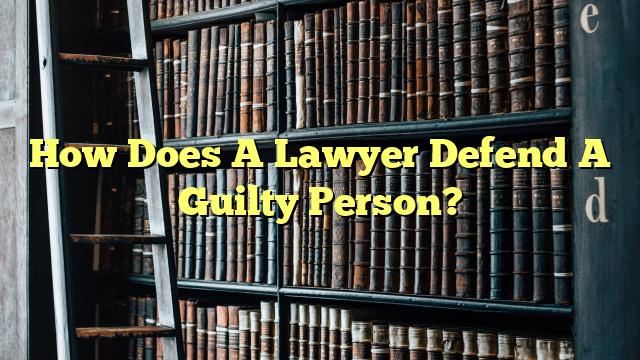Table of Contents
- What is the Role of a Lawyer Defending a Guilty Client?
- Can a Lawyer Defend Someone They Know is Lying?
- Can You Defend a Client You Know is Guilty?
- What is it Called When a Lawyer Defends the Accused?
- Why Do Lawyers Protect Guilty Clients?
How Does A Lawyer Defend A Guilty Person?
What is the Role of a Lawyer Defending a Guilty Client?
When a lawyer takes on the role of defending a guilty client, they are tasked with providing the best legal defense possible in a court of law. This includes being prepared to present legal arguments, such as questioning the evidence against the accused and challenging the credibility of witnesses. This is all done to give the accused the best chance of being found not guilty or receiving a reduced sentence.
Can a Lawyer Defend Someone They Know is Lying?
Yes, a lawyer is ethically required to provide the best legal defense for their client, even if they believe their client is lying. In many cases, lawyers are only able to do their job if their client is truthful. However, if a lawyer knows their client is lying, they must still present their case in the best way possible. This can involve finding loopholes in the prosecution’s case or pointing out inconsistencies in the evidence.
Can You Defend a Client You Know is Guilty?
Yes, a lawyer can defend a client they know is guilty. This is an ethical obligation of lawyers, known as the “presumption of innocence” principle. This principle states that a lawyer must defend their client to the best of their ability, regardless of their guilt or innocence. It is the job of the lawyer to challenge the prosecution’s case, present evidence and arguments in favor of their client, and present mitigating factors that might reduce the sentence if a conviction is found.
What is it Called When a Lawyer Defends the Accused?
When a lawyer defends someone accused of a crime, it is known as “criminal defense.” It is the lawyer’s job to provide a vigorous defense in order to protect the rights of their client and ensure the proper application of the law.
Why Do Lawyers Protect Guilty Clients?
Lawyers protect guilty clients because it is their ethical obligation to do so. It is the lawyer’s job to ensure their client is given the full protection of the laws in their jurisdiction. This includes presenting the best legal defense possible, regardless of whether or not their client is guilty. Lawyers must uphold the principle of the presumption of innocence, which states that everyone is innocent until proven guilty in a court of law. This means that lawyers must defend their clients in the same way they would anyone else, even if they believe their client is guilty.


Defending the guilty can be a tough dilemma for lawyers. It takes courage to represent those accused of a crime against society’s moral code. As challenging as it may be, lawyers in this position must remember their duty to the law and uphold justice.